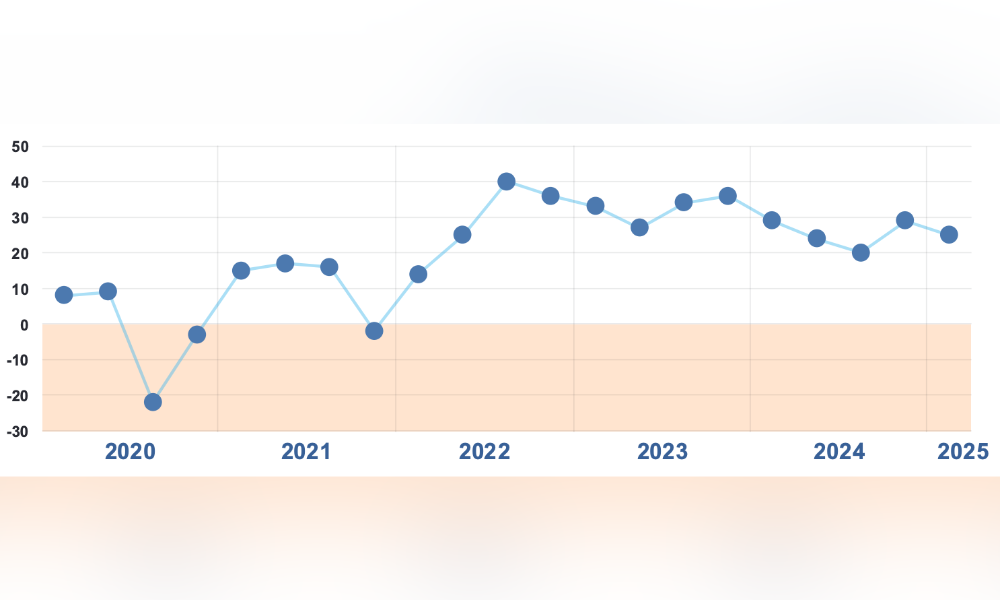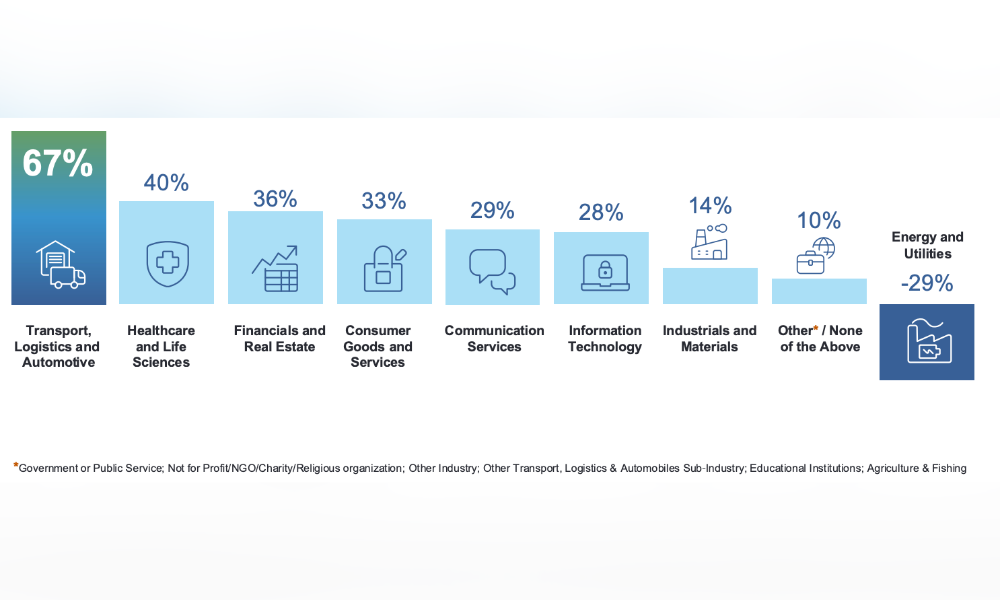
New findings also reveal progress on gender equality in workplaces

Employers are entering 2025 with a "cautious" approach to hiring after hiring sentiment declined slightly in the latest ManpowerGroup Employment Outlook Survey (MEOS).
Singapore's Net Employment Outlook (NEO) for the first quarter of 2025 slid to +25%, down slightly from 29% in the previous quarter.
According to the MEOS, 45% of employers are anticipating an increase in hiring, 34% are reporting no changes to their headcount, while 20% are expecting a reduction to staffing levels.
"Despite a slight slowdown in hiring intentions from the previous quarter, the local labour market remains resilient, serving as a source of stability and consistency during these uncertain times," said Linda Teo, Country Manager of ManpowerGroup Singapore, in a statement.
"Given that the survey was conducted in October 2024, just before the U.S. presidential elections, employers are likely practicing cautious optimism."
By industry, the Transport, Logistics, and Automotive industry reported the highest employment outlook in Singapore with 67%, a massive increase from 44% in the previous quarter.
It also exceeds the global average in the industry by 43 points, and is the highest NEO recorded for the industry in Singapore since tracking began in 2010.
Teo attributed the increase to Singapore's growing reputation as a safe and reliable hub in Asia amid geopolitical tensions and uncertainties.
"Shifts in trade routes arising from geopolitical concerns as well as the normalisation of shipments transiting Singapore are expected to drive job creation in the Transport, Logistics, and Automotive sector," she said.
Meanwhile, the report also found a "positive shift" in Singapore in terms of gender equality.
Nearly three in four (74%) employers said they have reached and are getting closer to gender equality at work - up from 55% in 2024.
Another 61% of organisations said they are also on track with their pay equity initiatives.
"We're witnessing a positive shift in the corporate landscape, with more companies than ever committed to gender equality," Teo said.
The top strategies adopted by employers to drive progress in gender equality at work include effectively supporting employee wellbeing and building trusting relationships with teams.
The findings come amid concerns that Singapore is facing a "concerning stagnation" when it comes to gender pay equality and DEI practices, as nearly half of workers feel their organisations are not seeing any improvement.
Teo said their findings indicate that organisations are starting to recognise that diversity and inclusion are "smart business strategies."
"By creating diverse and inclusive workplaces, organisations can unlock innovation, improve decision-making, and enhance their bottom line," she said.